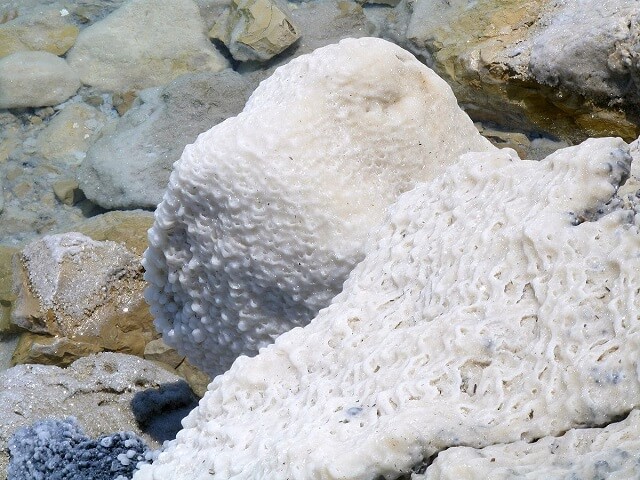
The Torah vividly contrasts the kindness and hospitality of Abraham’s household with the cruelty and greed of the citizens of Sodom. When visitors arrived at Lot’s home, the entire city, young and old, surrounded the house with the intention of molesting his guests. Lot’s attempts to appease the rioters only aggravated their anger.
Washing after Meals
The Talmud makes an interesting connection between the evil city of Sodom and the ritual of washing hands at meals. The Sages decreed that one should wash hands before and after eating bread, as a form of ritual purification, similar to partial immersion in a mikveh (ritual bath). The rabbinical decree to wash hands before meals is based on the purification the Kohanim underwent before eating their terumah offerings.
The Talmud in Chulin 105b, however, gives a rather odd rationale for mayim acharonim, washing hands after the meal. The Sages explained that this washing removes the salt of Sodom, a dangerous salt that can blind the eyes. What is this Sodomite salt? What does it have to do with purification? How can it blind one’s eyes?
The Selfishness of the Sodomites
In order to answer to these questions, we must first understand the root source of Sodom’s immorality. The people of Sodom were obsessed with fulfilling their physical desires. They concentrated on self-gratification to such a degree that no time remained for kindness towards others. They expended all of their efforts chasing after material pleasures, and no energy was left for helping the stranger.
Purifying the Soul When Feeding the Body
A certain spiritual peril lurks in any meal that we eat. Our involvement in gastronomic pleasures inevitably increases the value we assign to such activities, and decreases the importance of spiritual activities, efforts that truly perfect us. As a preventative measure, the Sages decreed that we should wash our hands before eating. Performing his ritual impresses upon us the imagery that we are like the priests, eating holy bread baked from terumah offerings. The physical meal we are about to partake suddenly takes on a spiritual dimension.
Despite this preparation, our involvement in the physical act of eating will reduce our sense of holiness to some degree. To counteract this negative influence, we wash our hands after the meal. With this ritual cleansing, we wash away the salt of Sodom, the residue of selfish preoccupation in sensual pleasures. This dangerous salt, which can blind our eyes to the needs of others, is rendered harmless through the purifying ritual of mayim acharonim.
(Gold from the Land of Israel. pp. 44-45. Adapted from Ein Eyah vol. I, p. 21)
Illustration image: Salty stone at Dead Sea (Wikimedia Commons)





